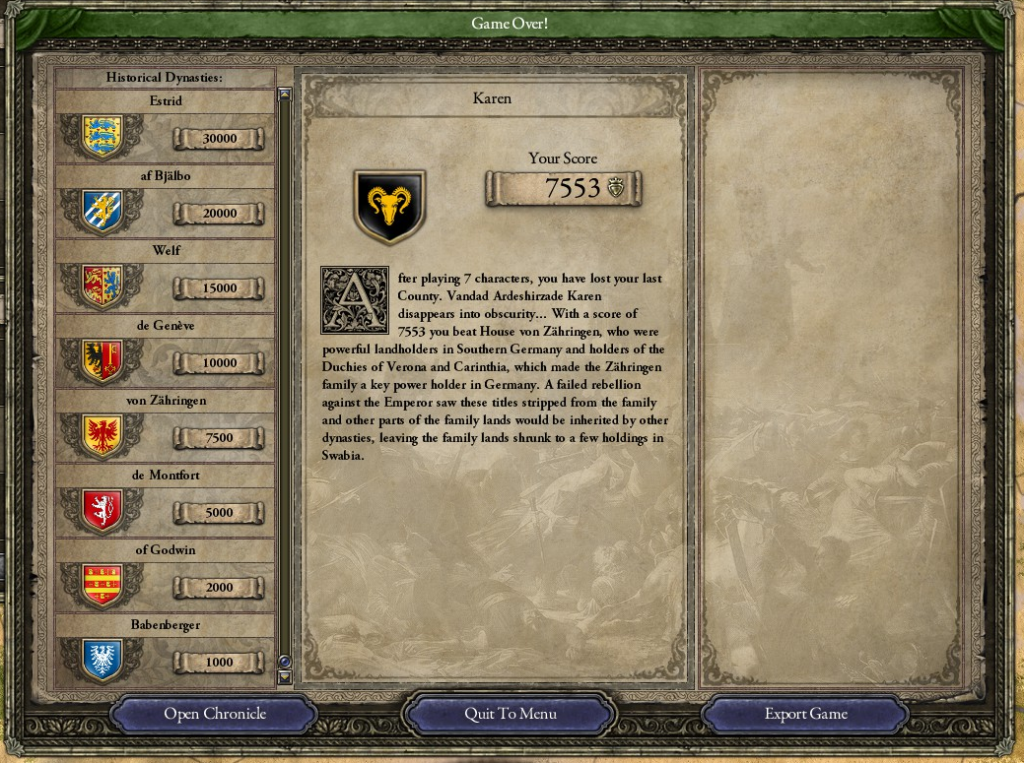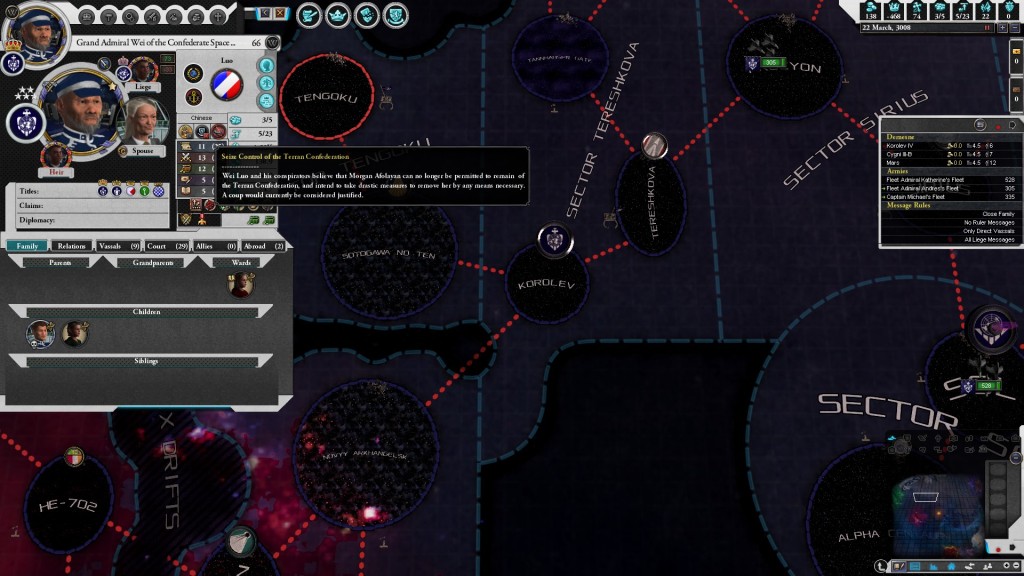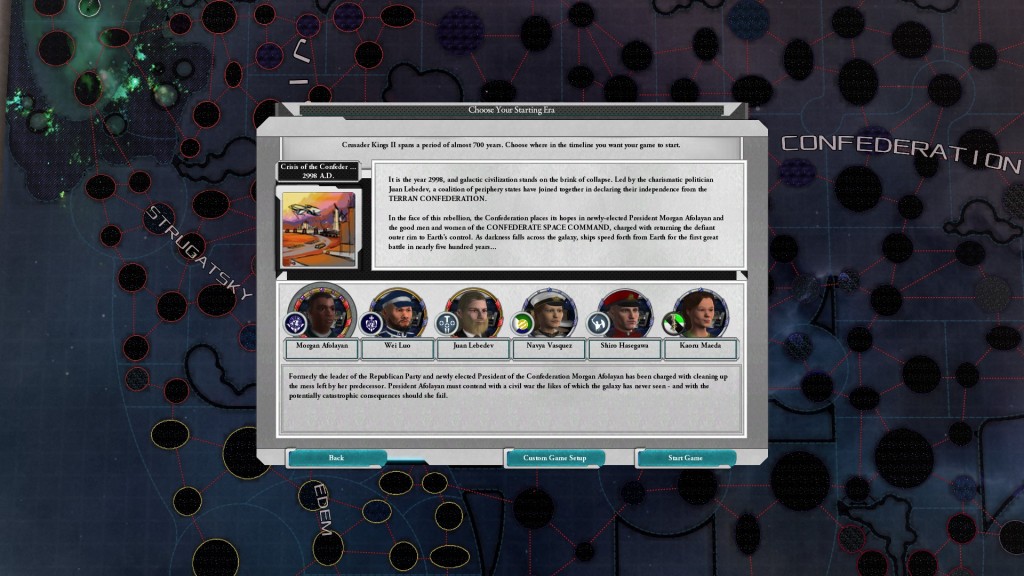After many attempts to restore the Persian empire in Crusader Kings 2, I have learned two things.
First, playing a Zoroastrian is hard. The first three times, I tried playing Persian Zoroastrian lords: Vandad Karen, an independent lord in 867 (twice), and Shorzan Bavandid, a vassal of the Abbasid Caliphate in 769. I didn’t last long: Vandad is surrounded by hostile neighbours, and Shorzan and his heirs live at the mercy of the Caliph. The fourth time, I chose Wakhushakk1, a tribal chief who rules over a single province in 769 – and this time, after many saves and reloads, I was able to carve out (albeit not keep) a kingdom along the Silk Road. In the process, I made my second discovery: the game has a pretty cool model of tribal societies, as distinct from feudal proto-states.
The key difference2 is that in my experience, feudal armies are predictably sized and only grow gradually. Bigger and more developed realms can raise more troops, but newly conquered territories don’t contribute troops for some time, and developing holdings takes time and money. In contrast, tribes use the leader’s prestige as their main currency. Given a sufficiently prestigious leader, tribal armies can spring up overnight: if a tribe is at war, the player can cash in 500 prestige points in exchange for a 2,500-strong army. On the steppes, that is a big deal. For context, Wakhushakk’s starting levy is only about 350 men!3 The army will disappear in peacetime – but you can keep it around indefinitely by starting a new war before the old war is over.
The trick is getting that 500 prestige. There are several ways to accumulate prestige. One is passage of time: I spent the early years of my tribal game with the speed turned up to maximum, waiting for my prestige to hit the magic 500 mark. A faster way is to win wars. Hit 500 prestige, raise one army, win a few wars and earn another 500 prestige, raise a second army and add it to the first… it’s possible for a tribe to erupt out of nowhere and take its neighbours by storm.
But while tribes are powerful, they’re also brittle. Tribes are the antithesis of “rubber banding”: just as success feeds on success, defeat – and the consequent loss of prestige – can leave the tribe vulnerable. At best, defeat still meant twiddling thumbs while I waited for my prestige to recharge. A second vulnerability is the tribe’s reliance on a prestigious leader. Whenever one of my chiefs died, passing leadership onto an unproven son, my neighbours would pounce. In the end, after spending 50 years in “conquest” mode, I decided that boom-and-bust tribal mechanics had outlived their usefulness. It was time for my people to put down roots and switch to feudalism.
From a mechanical perspective, tribes in CK2 can be a little frustrating – and also exhilarating. From a thematic perspective, I love their representation as warrior societies reliant on charismatic leaders. It seems a very elegant way of representing real-world tribal conquerors who burst onto their neighbours like a bolt from the blue, while tribal limitations give players a reason to eventually settle down. Give the tribes a try!
Crusader Kings 2 base game and some DLC supplied by Paradox. I purchased the more recent DLC, including The Old Gods and Charlemagne, which made the abovenamed characters playable.
- In-game, Wakhushakk comes from the “Sogdian” dynasty. The Sogdians were a people dwelling along the Silk Road, so presumably he’s meant to represent independent Sogdian rulers. ↩
- There are several more differences – see this dev diary for more detail ↩
- I suspect Wakhushakk is one of the weaker tribal rulers – there’s a Norse chief in 769 AD who starts with a much more impressive 2,000+ men. Still, even in this case, 2,500 tribal warriors would double his army. ↩


